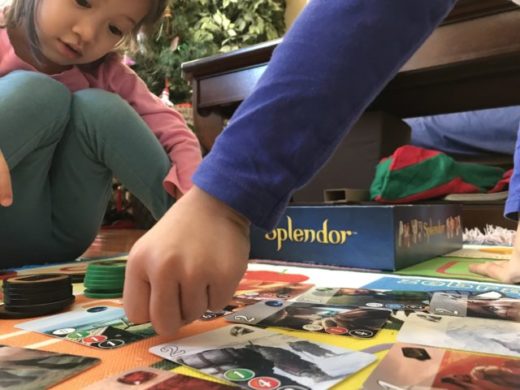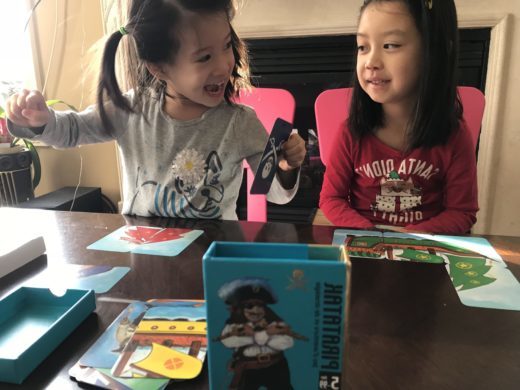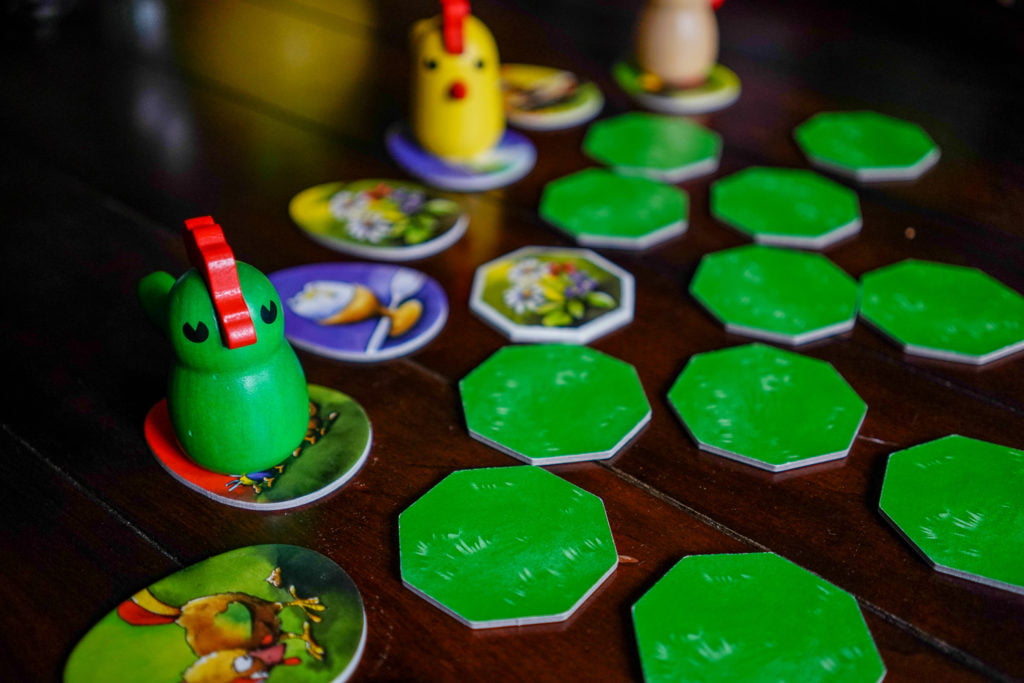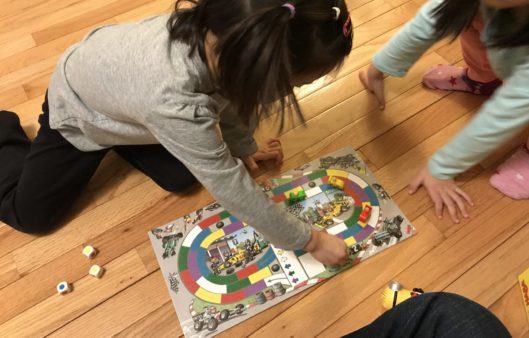For adults, board games have always been considered a combination of strategic challenge and social enjoyment. It is easy to see that this can extend to children games as well. Whether a game provides a challenging puzzle or a pure luck-fest, there are still many benefits to be gained by a growing child. They provide ample opportunities for facilitating both social and cognitive development. This will be the first of two posts looking at some of the benefits of board gaming with children broken down into these two categories, starting with …
******
SOCIAL DEVELOPMENT
Face-to-face interactions seem to be an ancient practice in the age of technology and social media. Such a vital component to human relationships is becoming a rare commodity. This is often a large reason parents are trying to get offline and board games are a tantalizing means to cut that cord and bring our kids back to earth. Each face-to-face interaction provides an opportunity to develop social skills that are critical in family life, school yard interactions, and future workplace success. However, to us, the most important aspect is the chance to build stronger bonds within the family.
No matter how boring and luck-driven a game is (cough, CandyLand, cough), a child can learn many principles that will help them in a social setting.
1) Turn Taking
Since birth children are impatient. Rightfully so. How dare we disturb their comfortable dark and warm world! Patience is a lesson we will be teaching our kids from infancy and well into their adolescence (which apparently some psychologists are lobbying to define as ending at age 24!). Turn taking in board games puts that lesson to the test. No matter what game it is, I always tell parents at least they are learning to share and wait their turn. Whether it’s their turn to roll a die or move a piece on the board, waiting for other players to finish is an essential lesson in following instructions that you can refer back to in other aspects of the day.

2) Delayed Gratification
In the age of fidget spinners and action-packed cartoons, children are growing accustomed to instant satisfaction. As parents, we are constantly attempting to instill patience and perseverance into their daily routines. Whether it’s something long term like learning an instrument or even something short term like waiting for dessert after a good meal, understanding that good things come to those who wait is a prized lesson. Board games provide ample opportunity to accomplish something one step at a time. Maybe a slow race to the finish, or completing a set of tasks one at a time. Many board games are segmented, step by step, to lead to the final celebration. However, not every game will end in celebration, which leads us to the next lesson …
3) Managing Loss
It’s not whether you win or lose, it’s how you play the game. Easy to say if you’re the one winning. For children, a loss can be devastating, but it’s also a valid lesson. Sometimes things don’t work out. A roll doesn’t go our way. A sibling gets all the luck. But in the end, what is key is that you all had fun. It’s our job to show them how much fun we are having and they will soon learn that we love to play, win or lose. The fun will ease the pain of loss … slowly but surely.
4) Recognizing Social Cues
On the flip side, we also need to learn to be a good winner. Seeing our peers reaction to bad luck is a good lesson in recognizing social cues. Sometimes we can do something in a game that makes things harder for another player. Realizing our actions have consequences felt by others is critical in the social playground, such as why your friend might react poorly to the way you said something. We try to teach our kids it’s not what you say, it’s how you say it. It’s hard for a child to understand how our actions or words can affect others, but in a board game we can more clearly see cause and effect. It’s a good idea to point out these instances during gameplay so your children can more clearly see the relation.

5) Communication
We often hear and read from experts about how millenials have lost the art of communication. With the age of smart phones even dating has changed drastically and it seems like people are learning more about each other through social media than direct verbal communication. With board games, not only do you learn about how each other think and make decisions, you have to talk to each other in order to share resources or something as simple as “please pass me x”.
6) Building Confidence
A good game is designed so that luck only plays a minor role. Strong designs allow for learning and improvement over multiple plays. Even with a classic game like memory match, a child will get faster and faster over time and that child will know when he/she is improving. At first we will help out our kids as a way to show them how the game is played, but eventually they will figure things out by themselves. We might start by handicapping them at a game of checkers, but eventually they will legitimately win. That moment of discovery will be met with cheers and jubilations. Hearing your child say “I did it”, will be music to your ears, but more importantly it will strengthen their self-esteem.
At younger ages, building confidence is more critical so I always suggest memory based games. Admit it or not, they often have stronger memory skills than we currently do, so a good memory game such as Chicken Cha Cha will even the playing field, often leading them to a legitimate win.

6) Cooperation and Teamwork
When I introduce games at a young age I often turn to cooperation games. It’s the easiest way to teach all the social skills listed above. But it also contrasts with all the toys we have that are at most part, solitary play. Giving them the opportunity to work together towards a common goal will foster stronger relationships and will be good practice for when they are older.

******
As our children grow into little humans the majority of their social interactions is with us, their parents. Naturally, that presents limitations in the types of contexts they experience. Board games present different and unique social situations that don’t occur often in everyday home life. As they enter a school setting they will be flooded with a variety of unfamiliar circumstances. A variety of games will provide the foundation for them to deal with those challenges.
